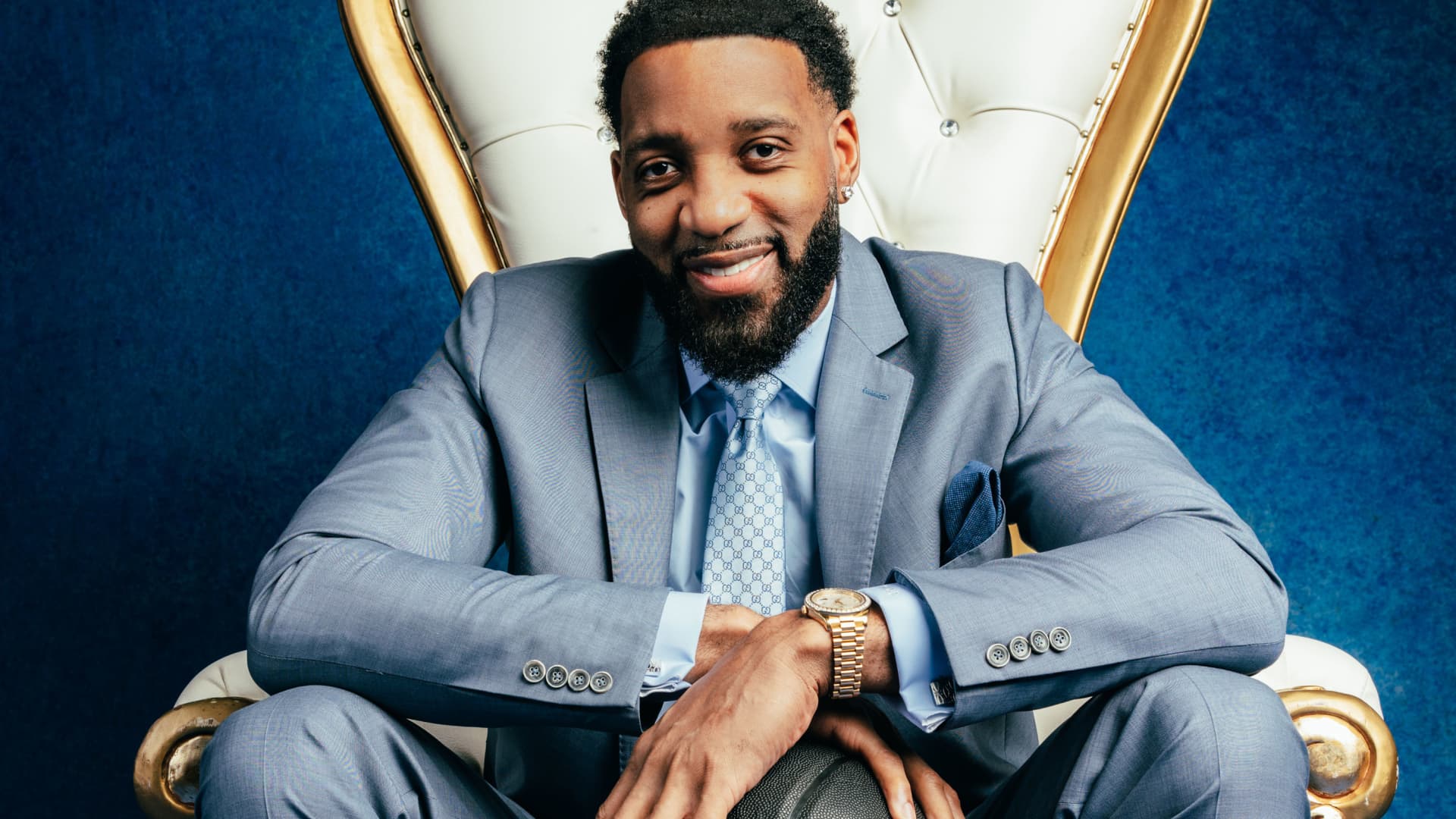
This time, Tracy McGrady is trusting his ideas.
The basketball Hall of Famer has funded real estate projects, he’s backed a sports and entertainment agency, and committed to a cryptocurrency partnership before the sector lost billions in value. Now, McGrady is investing in his own company, Ones Basketball League, or OBL, which makes its New York premiere this weekend.
“I’ve always invested in other people’s ideas and other people’s vision,” McGrady told CNBC in an interview. “Not once did I ever trust mine. I didn’t have the confidence to think mine was good enough. I didn’t trust my ideas or decision-making when it came to my vision.”
He added: “This is the first time I actually trusted and believed that I can pull this off.”
McGrady, 43, self-funds OBL, an over-18 league through that tours seven cities from April to July. It pairs players in one-on-one games, a staple of playground basketball. Picture Ice Cube’s Big 3 league, but with fewer players and no former NBA stars.
McGrady will pay just under $10 million, all told, including the $250,000 prize for the eventual OBL champion. He has partnered with longtime sports executive and former XFL president Jeff Pollack to help with operations. Pollack says the costs associated with the league are “not significant” so far.
“That means we’re going to have an opportunity to grow this business and do it in a way where the economics, in the beginning, are pretty favorable,” Pollack said.
McGrady wants to attract a mass Generation Z audience, meaning those born after 1997. Then, he believes, media and sponsorship fees will follow.
While OBL is new to the minor league sports scene, he pointed to other amateur leagues such as cornhole and bowling that draws a niche audience on networks and believe OBL can do the same.
“No disrespect to what these other things ESPN is putting on their programming – this is more entertaining,” McGrady told CNBC earlier this week at the Standard Hotel in Manhattan.
OBL has already found a prominent media supporter. It struck a digital distribution deal with Paramount-owned Showtime network that allows the network to show OBL content on its YouTube channel as well as cross-promotion.
Terms of this pact were undisclosed, but OBL confirmed it would split advertisement revenue.
McGrady gets the keys
Drafted in 1997 by the Toronto Raptors, McGrady played 16 seasons in the NBA, including a long stretch with the Houston Rockets, and made over $160 million in earnings, according to Spotrac, a website that tracks sports contracts. McGrady’s earnings include a $92 million deal with the Orlando Magic in 2000. His last NBA season was 2011-12.
He compared OBL to his stint with the Magic. It only lasted four seasons, but it was the start of seven-straight All-Star appearances and McGrady’s transition to “a household name” in the NBA.
“I finally get the keys handed to me and blossomed into this [All-Star] player,” said McGrady. “I didn’t see me being that type of guy. And I didn’t see [OBL] being this.”
OBL launched in February. The league plays regional games featuring 32 players throughout seven cities, including New York and Los Angeles. Players that win regional games earn $10,000. The top three players from the games can compete for the bigger $250,000 payout.
McGrady praised his two teenage sons for sparking his interest in one-on-one basketball. They don’t really watch live NBA or NCAA games, he said. “What they will watch: YouTube, short-form content, highlights,” McGrady added.
McGrady isn’t naïve about the start-up. He expects OBL will have hiccups, and profitability will be unlikely at first. McGrady and Pollack didn’t discuss specifics around OBL’s plan to make money, but they expect to eventually profit from licensing deals, sponsorships and ticketing, which would help create a return on investment for potential sponsors.
“It’ll come from the audience we ultimately reach and engage,” Pollack said. “We have a long way to go.”
He added that OBL would eventually seek investors, but at this stage, “we want to make sure that we understand clearly what this should be, and then we’ll plan how to grow it.”
OBL is joining a crowded sports media landscape. Competitors include the Drake- and Jeff Bezos-backed media company Overtime. This media firm operates Overtime Elite, or OTE – the league that pays high schoolers $100,000 with an established Gen Z following.
Macroeconomic concerns, including inflation, threaten early growth. Asked about these factors, Pollack suggested OBL is playing the long game.
“We’re in a tough economic time, and it may get worse,” Pollack said. “But we’re going to come out of it at some point, and what we’ve all seen in the last couple of years is the consumer appetite for sports content is as insatiable as it’s ever been.”
Should OBL attract its target audience to watch social media sports content, McGrady plans to grow the company globally.
“I have the right team to make it happen,” he said. “I think we’ve identified a model where it’s very entertaining.”




